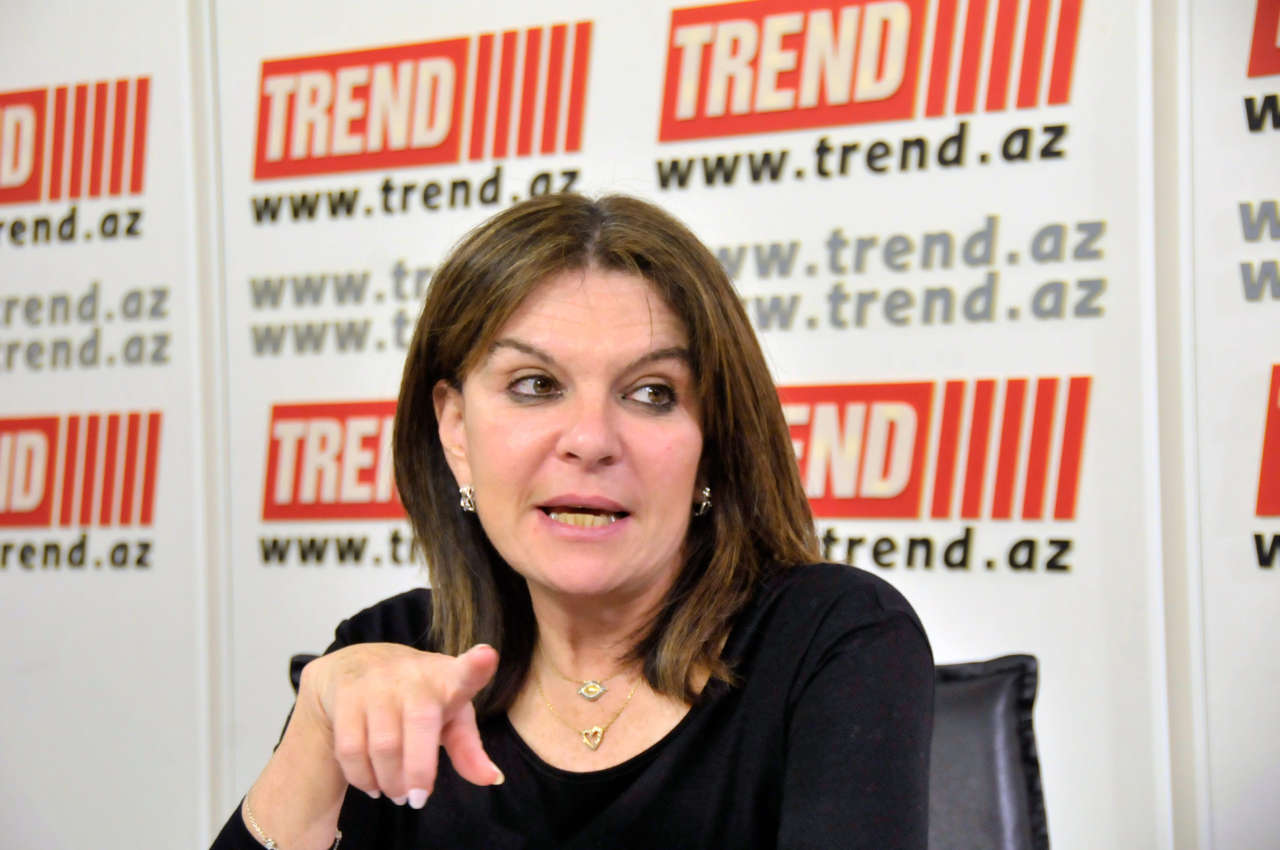Baku, Azerbaijan, May 20
By Fatih Karimov - Trend:
As the nuclear deal deadline with Iran looms, concerns over the consequences are rising among Iran's Arab rivals in region, as well as Israel.
U.S. President Barack Obama vowing on May 14 to back Gulf allies against any "external attack", apparently infers Iran, which is charged by Arab states for involvement in the Yemen crises, as well as attempting to dominate Iraq, Bahrain, Lebanon, Syria and Yemen.
Member of the French Senate Commission for International Affairs, Nathalie Goulet told Trend on May 20 that the closer the negotiations come to reaching a deal, the "more scared we are".
"Coming to Gulf Cooperation Council (GCC), Iran's nuclear deal will be like a tsunami and revolution for them, because there are a huge problems in the Middle East, Iran is involved in places like Bahrain, Syria, Iraq, Yemen and Hezbollah. However, as Iran currently is a part of problem, the country can become a part of solution- like Iran's role in talks with former Prime Minister Nouri al-Maliki, or helping Iraq to fight against ISIL."
Iran and P5+1 Group that includes the U.S., France, UK, Russia, China plus Germany are drafting the details of nuclear framework sheet to reach a comprehensive agreement by June 30.
Goulet, who is the chairman of France GCC friendship group, says that the West should give Iran a chance. " There are also economic concerns, mostly in the oil and gas sector, more than $100 billion Iranian frozen assets abroad".
Referring to an alliance between the West and Arab states, she said, "All of these states have about 50 million population versus 78 million Iranian people. The level of education is much lower than Iran, existence of a republic system in Iran, a better human right situation than for instance Saudi Arabia, etc".
She believes that the situation around Middle East is like a Rubik's Cube, when a rotation is made, the other parts should be moved to fit together. "It's a very exciting time for politicians, strategists, economists. On the other hand, there is the threat of ISIL, economic crisis, etc. There is also a big poker game being played in the Persian Gulf. On one hand, there are little countries, reaching energy reserves, monarchies, and on the other hand there is a big nation state (Iran) on the interests list of the West," she said.
However, Goulet believes that improving Iran-Western relations would bring both more economic progress, as well as more democracy for Iranians, as well as the country's neighbors.
"If we review the history, Iran's late Shah was betrayed by all his allies, then Iran had a revolution, a short time after that the war with Iraq, while the world supported Baghdad against Iran, left one million dead, then the western embargo on Iran, then further embargo, etc. This means that Iran has never had a chance to evolve. On the other hand, the patriotism of the Iranian people blocked all the world because all the world was against Iran (during the war with Saddam Hussein 1980-88) for good reasons and bad reasons".
French senator said, "you have Ex-President Mahmoud Ahmadinejad for eight years. This man jeopardized the reputation of the country. We may need ten years time to recover from the damage done by Ahmadinejad, especially his statements about wiping Israel from the world's map. This created extreme mistrust and gave Iran a bad reputation that blocked Iran. "
Edited by CN






